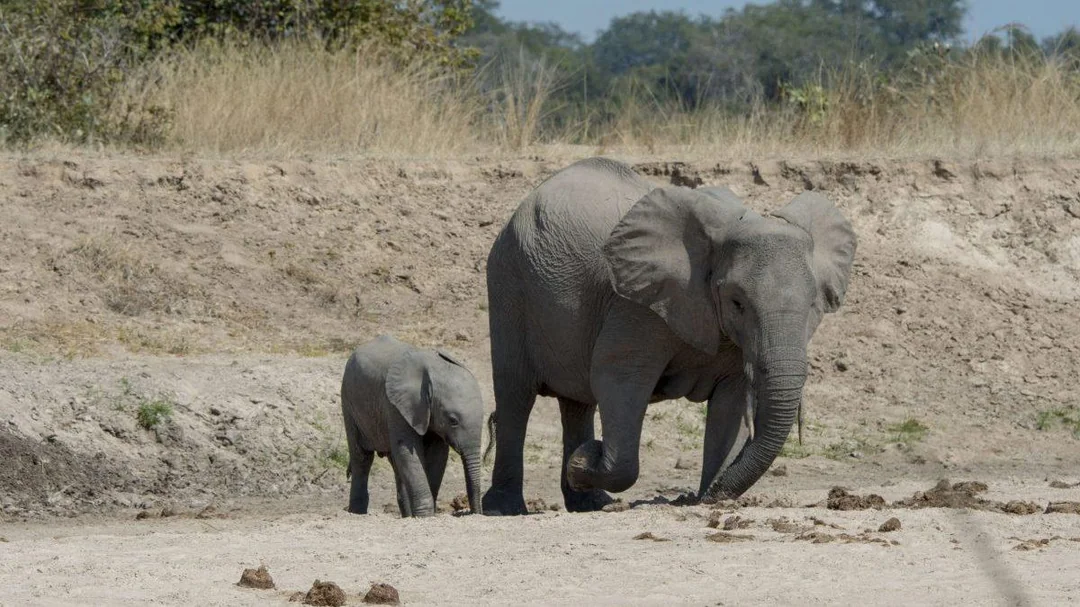Zambia Elephant Attack Highlights Dangers of Wildlife Encounters
In a tragic Zambia elephant attack, a British woman and a New Zealand tourist were killed by a charging elephant during a guided walking safari in South Luangwa National Park. The Zambia elephant attack occurred when a female elephant, believed to be protecting her calf, suddenly charged the group. Witnesses described the Zambia elephant attack as swift and violent, leaving no time for guides to prevent the fatal outcome. This shocking Zambia elephant attack has raised new concerns over tourist safety and wildlife encounters in African safari parks.
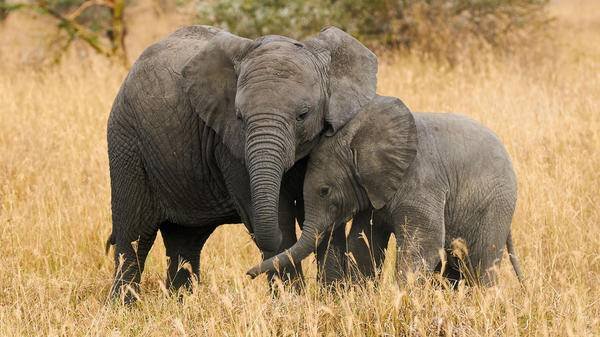
The focus keyphrase for this blog is: Elephant kills British and New Zealand tourists in Zambia
This blog explores the circumstances of the tragic event, the behavioral patterns of elephants, safety protocols for safari tourism, and Zambia’s broader wildlife tourism landscape. It also reflects on how such incidents can shape policy and awareness regarding human-animal interactions.
What Happened During the Zambia Elephant Attack?
Tourists Trampled During Guided Safari
The fatal incident took place in the South Luangwa National Park, located approximately 600 kilometers from Zambia’s capital, Lusaka. The two women had been staying at a luxury tented lodge, the Big Lagoon Camp, for four days as part of their Zambian safari itinerary. On Thursday morning, while walking in the park with an official guide, they were attacked from behind by a charging female elephant.
Despite efforts by the guides to deter the animal by firing warning shots, the elephant managed to reach the women. Both were trampled to death on the spot. Authorities believe the elephant acted in defense of her calf, a behavior not uncommon among female elephants when they perceive a threat.
Victim Identities and Details
The victims have been identified as Easton Taylor, a 68-year-old British woman, and Alison Taylor, 67, from New Zealand. Authorities have not confirmed whether the two were related. Both were part of a group on a walking safari, an increasingly popular but risk-prone activity in Zambia’s wildlife parks.
Elephant Behavior and Protective Instincts
Why Do Elephants Attack?
Elephants, particularly females with young calves, are known for their heightened sensitivity to perceived threats. The female that charged the tourists was likely reacting defensively, protecting her calf from what she interpreted as an intrusion into her territory.
Understanding Elephant Body Language
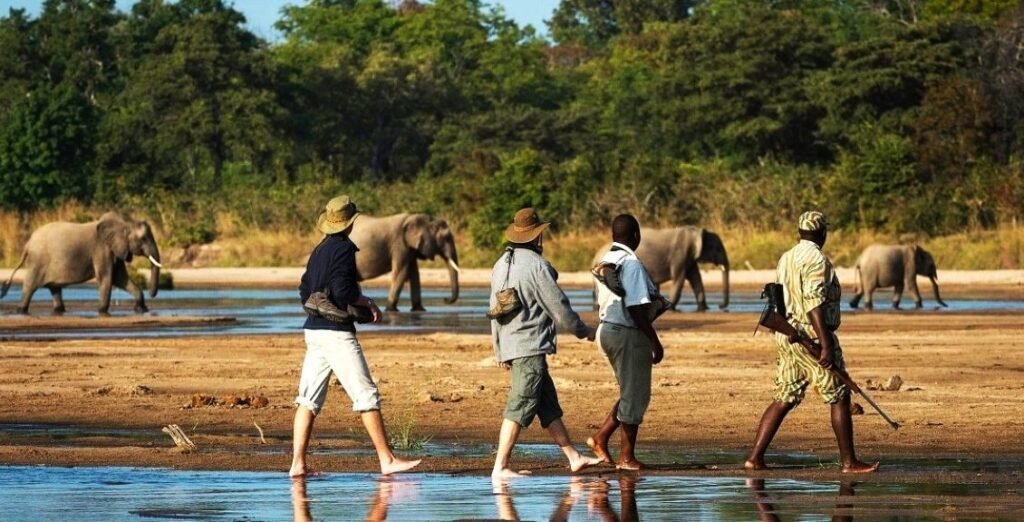
Wildlife experts advise that elephants exhibit certain signs before charging: flaring ears, trunk curling, loud trumpeting, and mock charges. However, sometimes elephants do not give enough warning, especially when under stress or when a calf is present.
Defensive Aggression vs. Predatory Behavior
Unlike predators such as lions or leopards, elephants do not attack humans for food. Their aggression is typically a form of defensive behavior, often triggered by fear, surprise, or provocation. In this case, the presence of a calf could have intensified the elephant’s need to protect her young.
Zambia Elephant Attack Sparks Safety Concerns Over Walking Safaris
The Appeal of Walking Safaris in Zambia
Zambia is known for pioneering walking safaris—a unique form of wildlife tourism that allows visitors to experience animals in their natural habitat at ground level. South Luangwa National Park, in particular, is famed for offering intimate, immersive walking experiences with trained guides.
Safety Protocols: Are They Enough?
While walking safaris are led by trained guides and often accompanied by an armed scout, the unpredictability of wild animals always presents risks. In remote areas with dense bushland, visibility can be limited, making it difficult to spot charging animals in time.
Guidelines Tourists Should Follow
- Maintain silence: Loud noises can startle animals.
- Avoid sudden movements: Predators and large herbivores can interpret these as threats.
- Stay in single file: This minimizes the group’s footprint and reduces detection by wildlife.
- Follow the guide’s instructions without hesitation.
Zambia Elephant Attack Highlights Risks of Wildlife Tourism
Wildlife Diversity in South Luangwa
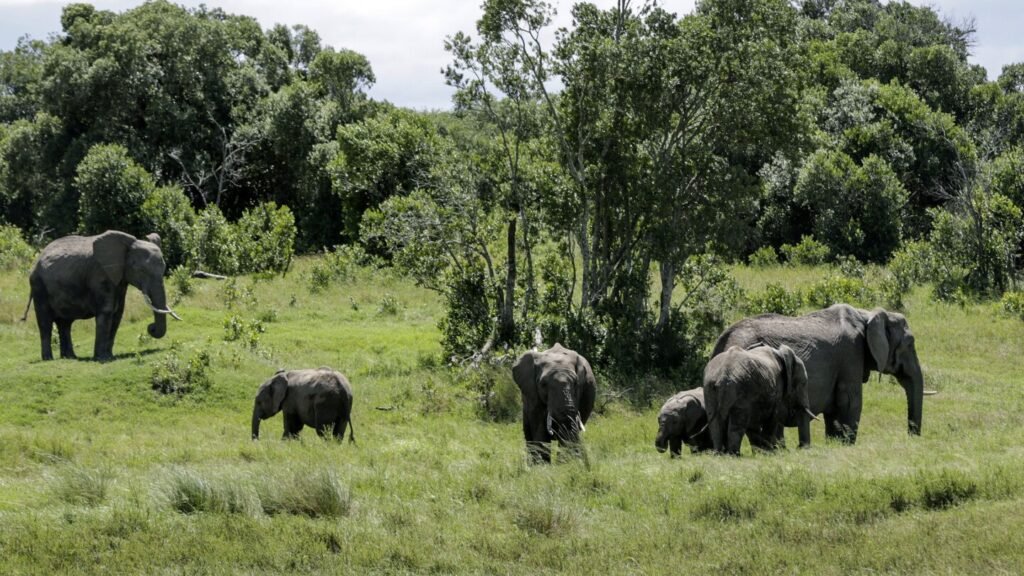
South Luangwa is home to a wide range of species, including elephants, lions, leopards, hippos, and crocodiles. The park plays a critical role in Zambia’s ecotourism and conservation economy.
Human-Wildlife Conflict on the Rise?
While Zambia markets its parks as safe for tourists, fatal wildlife incidents have been reported in recent years. Last year, two American tourists were killed in separate elephant-related accidents, both while inside safari vehicles. These incidents point to the need for improved tourist awareness and strengthened park protocols.
Impact on Zambia’s Tourism Industry
A Blow to the Safari Reputation
Zambia’s tourism sector, particularly its safari offerings, could face scrutiny following repeated fatal incidents involving tourists. These events can lead to international travel advisories and reduced bookings.
Need for Enhanced Safety Measures
Calls are growing for the implementation of advanced safety measures such as:
- Real-time animal tracking systems for guides
- Expanded use of drones for early detection
- Visitor briefings with updated wildlife movement information
Government Response and International Reactions
Local authorities expressed deep regret over the incident and reiterated their commitment to tourist safety. International agencies have extended support to the families of the victims, while consular assistance is being provided.
Zambia Elephant Attack Raises Questions on Ethical Wildlife Tourism
Balancing Conservation and Tourism
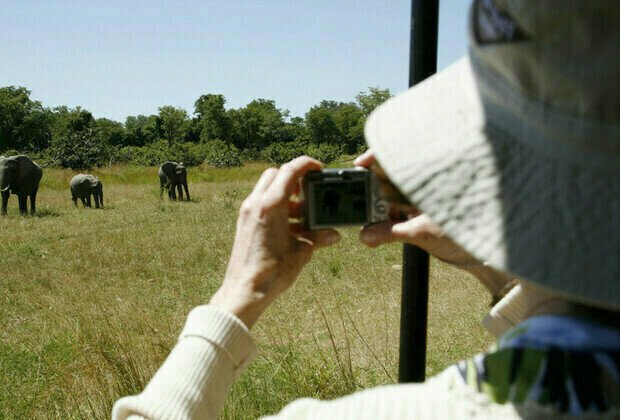
Zambia walks a fine line between promoting conservation and sustaining its tourism revenue. Elephants, being keystone species, are protected under national and international law, complicating decisions to control or relocate aggressive individuals.
Ethical Safari Practices
Eco-conscious tourists and operators are emphasizing:
- Keeping a respectful distance from wildlife
- Avoiding feeding or luring animals
- Supporting lodges and parks that follow ethical practices
Psychological Impact on Survivors and Witnesses
Trauma Among Safari Participants
The incident is likely to have long-term psychological effects on fellow tourists and guides who witnessed the attack. Immediate psychological support and debriefing are essential to reduce trauma.
The Burden on Safari Guides
Safari guides face the dual responsibility of ensuring tourist safety and protecting wildlife. Incidents like this can impact their careers, mental health, and future employment opportunities.
Global Patterns of Elephant-Related Fatalities
A Rising Global Concern
Elephant attacks are not unique to Zambia. India, Thailand, Kenya, and Botswana have also reported fatal elephant encounters involving tourists and locals alike. These incidents often occur in areas where human settlements encroach on elephant corridors or during peak breeding seasons.
Elderly Tourists at Greater Risk?
Several cases, including this one, have involved elderly tourists who may have slower reaction times and limited mobility. Some safari operators are considering age-specific safety guidelines as a precautionary measure.
Prevention: Can Future Incidents Be Avoided?
Technological Solutions
Innovations such as:
- Animal proximity sensors
- Real-time warning apps
- Thermal cameras
are being tested in various countries to prevent surprise encounters during safaris.
Enhanced Training for Safari Staff
Guides must undergo rigorous re-training on animal behavior, situational risk assessment, and emergency response. Incorporating local knowledge and recent wildlife movement data can further reduce risks.
Honoring the Victims While Learning from the Incident
Remembering the Lives Lost
While names have been made public, it’s important to respect the privacy and grief of the victims’ families. Both women were reportedly seasoned travelers, drawn to Zambia’s beauty and biodiversity.
Turning Tragedy into Action
Let this tragedy serve as a wake-up call for all stakeholders—tourists, safari companies, wildlife authorities, and governments. Responsible tourism must prioritize not just breathtaking experiences but also human and animal safety.
Respecting Nature’s Boundaries
Zambia remains one of Africa’s premier safari destinations, offering unparalleled access to raw, untamed nature. However, incidents like the one at South Luangwa National Park underscore the urgent need to respect wildlife boundaries, reinforce safety measures, and ensure that the pursuit of adventure doesn’t come at the cost of human lives.
Wild animals, no matter how majestic or familiar they may seem, are unpredictable. Tourists must remain vigilant, and operators must adapt swiftly to evolving challenges in wildlife tourism. Only by working together can we ensure that the wild remains both wondrous and safe.
